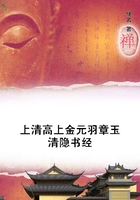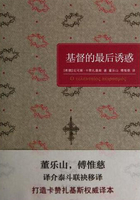The representative system remained unknown to Russia throughout the sixteenth century. The Assembly which in 1584confirmed the right of the eldest son of Ivan, Theodor, to occupy the Russian throne, although called "a parliament" by the English Resident Hoarsav was, according to the same author, composed of nothing but the chief clergy and members of the higher and lower nobility. Another assembly, that of 1585, called to deliberate on the question of clerical immunities and the necessity for subjecting the lands of monasteries to general taxation, contained in its ranks only the higher clergy, the chief officers of the State, and the members of the Council or Douma.
The Rurik family became extinct on the death of the Czar Theodor, and a new dynasty had to be chosen. The higher nobility seized this opportunity to impose certain limitations on the exercise of the Sovereign power. But the nearest candidate to the throne, Boris Godounov, not being willing to consent to such limitations, refused to accept the throne offered him by the boyars and insisted on the necessity of summoning the cities to decide who should occupy the throne of the Rurik family. He did this in the expectation that the people would oppose any measure limiting the principle of autocracy. The Sobor, which was called together according to his wish, was widely different from the ideal of a truly National Assembly. Of the 457 members who were present at its sittings, 83 belonged to the higher clergy, and 338 to the bureaucracy and the higher and lower nobility. As to the third estate, it was composed of only 21 hosts, of the head of the Guild of hosts and of 13 deputies from the rural districts. This assembly was presided over by the Patriarch, the Chief of the Russian clergy,and unanimously expressed itself favourable to Boris Godounov, to whom the Russian throne was offered unconditionally.
Representatives of the lower classes of the city of Moscow appeared in 1605 at the Sobor to which the false Demetrius entrusted the right of judging the boyar and future Czar, Basilius Schouisky, on account of a rebellion which he had instigated. The Sobor condemned Schouisky to death, but the Czar Demetrius commuted this punishment to perpetual banishment to the City of Viatka, whence he soon returned at the gracious order of the monarch.
The Assembly which in 1606, after the death of the false Demetrius, elected Schouisky as the Czar of Russia, was not a Sobor in the true sense of the word, for it was chiefly composed of the boyars. The Moscow mob nevertheless sanctioned the election, and the new Czar was eagerly proclaimed at the so-called "read place," in front of the palace.
This election of Schouisky has some claim to our attention, as it was the first at which constitutional limits were imposed on Russian autocracy. The newly elected Czar had no immediate relation with the dynasty of Rurik, and was but the equal of the other boyars. He was known to be vindictive and to have a great number of relations and friends who would be ready enough to make use of his power for their own advantage. All this induced the boyars to protect their own interests by the creation of rules which their nominee was obliged to accept. According to Strahlenberg, the well-known author of the "historical and Geographical Description of the Northern and Eastern parts of Europe and Asia" (a book written in German and published at Stockholm in the year 1703), the constitutional limitations imposed were as follows: "No new law was to be made and no innovations were to be introduced in the old legislation without the consent of the Douma. (Strahlenberg calls it senatus.) No new contributions were to be levied unless previously discussed and accepted by the same Council."(6*) These constitutional limitations as you may easily perceive, were exactly the same as those established in England by the Magna Charta and the statute of Edward the First, de tallagio non concedendo, but whilst the English people entrusted the care of their liberty to the lords, gentlemen, and citizens in Parliament assembled, the Russian boyars wanted to keep to themselves the exclusive control of the sovereign power. This caused the failure of their constitution, and was the chief reason why, on the occasion of a new election, the control of the Constitutional compromise entered into by the people and the Czar, was no longer entrusted to the Douma of the boyars, but to the representative Assembly of the whole nation --that is to the Sobor.
Schouisky reigned only a few years. In 1610 he lost the crown by the decision of a new Assembly which assumed the title of Zemski Sobor, although it was chiefly composed of the boyars and the Moscow mob. This took place in the middle of July. A month later a treaty was signed by the boyars and the chief of the Polish army, by which Vladislas, son of Sigismund, king of Poland, was called to the throne of Russia. Like his predecessor, the new Czar accepted certain constitutional limitations, amongst others that of administering justice according to the existing customs and the rules by law established. No alterations in the latter could be made, except with the consent of the Council (Douma) of "the whole land." These last words meant the Zemski Sobor, the States-General or Parliament of Russia.















